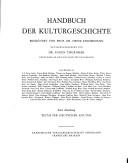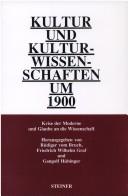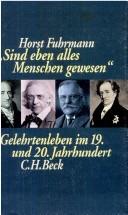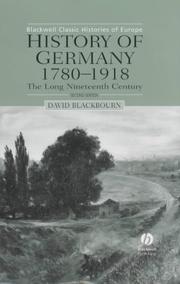| Listing 1 - 10 of 20 | << page >> |
Sort by
|
Book
ISBN: 3825351254 9783825351250 Year: 2006 Volume: 50 Publisher: Heidelberg Universitätsverlag Winter
Abstract | Keywords | Export | Availability | Bookmark
 Loading...
Loading...Choose an application
- Reference Manager
- EndNote
- RefWorks (Direct export to RefWorks)
Der Sammelband diskutiert den Essayismus um 1900 als epochenspezifisches Denk- und Schreibverfahren, das auf die verschiedenen historischen Diskurse Bezug nimmt und in sie eingreift. Der Essayismus um 1900 reagiert auf spezifische Erfahrungen der Moderne, auf die fortschreitende Ausdifferenzierung des Wissens dadurch, daß er bewußt die Grenzen der wissenschaftlichen Disziplinen überschreitet, gesellschaftliche Partikularisierungen wahrnimmt und die verlorene "Einheit der Kultur" schreibend wieder herzustellen versucht. Der Band dokumentiert eine Tagung am Internationalen Forschungszentrum Kulturwissenschaft in Wien 2004 ; er versammelt kulturwissenschaftliche Beiträge verschiedener Fächer. Das Spektrum der Beiträge reicht von der Wissenschaftsphilosophie über die Kultursoziologie und Literaturwissenschaft bis hin zur Kunstgeschichte.
Essay --- Germany --- Intellectual life --- German essays --- History and criticism. --- Germany - Intellectual life - 19th century --- Germany - Intellectual life - 20th century

ISBN: 3799700870 9783799700870 Year: 1971 Publisher: Frankfurt am Main Athenaion
Abstract | Keywords | Export | Availability | Bookmark
 Loading...
Loading...Choose an application
- Reference Manager
- EndNote
- RefWorks (Direct export to RefWorks)
Book

ISBN: 9781782385981 1782385983 9781782385974 1782385975 Year: 2015 Publisher: New York Oxford
Abstract | Keywords | Export | Availability | Bookmark
 Loading...
Loading...Choose an application
- Reference Manager
- EndNote
- RefWorks (Direct export to RefWorks)
No detailed description available for "Germany and 'The West'".
Book
ISBN: 0691031444 Year: 1990 Publisher: Princeton, N.J. Princeton University Press
Abstract | Keywords | Export | Availability | Bookmark
 Loading...
Loading...Choose an application
- Reference Manager
- EndNote
- RefWorks (Direct export to RefWorks)
Antisemitism --- Germany --- History --- 19th century --- Philosophy [German ] --- Intellectual life --- Ethnic relations --- Antisemitism - Germany - History - 19th century. --- Philosophy, German - 19th century. --- Germany - Intellectual life - 19th century. --- Germany - Ethnic relations.
Book
ISBN: 9782745324528 2745324527 Year: 2013 Volume: 21 Publisher: Paris Champion
Abstract | Keywords | Export | Availability | Bookmark
 Loading...
Loading...Choose an application
- Reference Manager
- EndNote
- RefWorks (Direct export to RefWorks)
Historicism --- History --- Germany --- Historicisme --- Histoire --- Philosophy --- Intellectual life --- Philosophie --- Recherche --- Recherche. --- Historicism - History --- History - Philosophy --- Germany - Intellectual life - 19th century --- Germany - Intellectual life - 20th century

ISBN: 3515053387 9783515053389 Year: 1989 Publisher: Wiesbaden : Steiner,
Abstract | Keywords | Export | Availability | Bookmark
 Loading...
Loading...Choose an application
- Reference Manager
- EndNote
- RefWorks (Direct export to RefWorks)
Historiography --- -Civilization --- -History --- -Congresses --- Congresses --- -Germany --- Germany --- Intellectual life --- Civilization --- Congresses. --- History --- Historiography - History - Germany - Congresses --- Civilization - Historiography - History - Congresses --- Germany - Intellectual life - 20th century - Congresses --- Germany - Intellectual life - 19th century - Congresses

ISBN: 3406402801 9783406402807 Year: 1996 Publisher: München Beck
Abstract | Keywords | Export | Availability | Bookmark
 Loading...
Loading...Choose an application
- Reference Manager
- EndNote
- RefWorks (Direct export to RefWorks)
Monumenta Germaniae Historica (Deutsches Institut für Erforschung des Mittelalters) --- History --- Germany --- Allemagne --- Intellectual life --- Historiography --- Vie intellectuelle --- Historiographie --- Monumenta Germaniae Historica (Deutsches Institut für Erforschung des Mittelalters) --- Deutsches Institut für Erforschung des Mittelalters --- MGH --- Reichsinstitut für Ältere Deutsche Geschichtskunde --- History. --- Germany - Intellectual life - 19th century --- Germany - Intellectual life - 20th century --- ALLEMAGNE --- HISTORIOGRAPHIE --- HISTORIENS --- VIE INTELLECTUELLE --- 19E-20E SIECLES

ISBN: 0631231951 063123196X 9780631231950 9780631231967 Year: 2003 Publisher: Oxford Blackwell
Abstract | Keywords | Export | Availability | Bookmark
 Loading...
Loading...Choose an application
- Reference Manager
- EndNote
- RefWorks (Direct export to RefWorks)
Germany --- History --- Intellectual life --- Social conditions --- Germany - History - 1789-1900 --- Germany - History - 1871-1918 --- Germany - Intellectual life - 19th century --- Germany - Social conditions - 19th century --- Germany - Social conditions - 1871-1918 --- Allemagne --- 1789-1900 --- 1888-1918 (Guillaume II) --- Conditions économiques --- 1888-1918 --- 19e siècle --- Conditions sociales --- 1871-1918
Book
ISBN: 9781587298684 1587298686 1587299348 9781587299346 Year: 2010 Publisher: Iowa City University of Iowa Press
Abstract | Keywords | Export | Availability | Bookmark
 Loading...
Loading...Choose an application
- Reference Manager
- EndNote
- RefWorks (Direct export to RefWorks)
While it is common knowledge that Jews were prominent in literature, music, cinema, and science in pre-1933 Germany, the fascinating story of Jewish co-creation of modern German theatre is less often discussed. Yet for a brief time, during the Second Reich and the Weimar Republic, Jewish artists and intellectuals moved away from a segregated Jewish theatre to work within canonic German theatre and performance venues, claiming the right to be part of the very fabric of German culture. Their involvement, especially in the theatre capital of Berlin, was of a major magnitude both numerically and i
Theater --- Jews in the performing arts --- Jews --- History --- Intellectual life --- History. --- Hebrews --- Israelites --- Jewish people --- Jewry --- Judaic people --- Judaists --- Ethnology --- Religious adherents --- Semites --- Judaism --- Performing arts --- Theater - Germany - History - 19th century --- Theater - Germany - History - 20th century --- Jews in the performing arts - Germany - History --- Jews - Germany - Intellectual life - 19th century --- Jews - Germany - Intellectual life - 20th century
Book
ISSN: 01744410 ISBN: 3484350881 3110943824 9783484350885 Year: 2002 Volume: 88 Publisher: Tübingen: Niemeyer,
Abstract | Keywords | Export | Availability | Bookmark
 Loading...
Loading...Choose an application
- Reference Manager
- EndNote
- RefWorks (Direct export to RefWorks)
Was passiert mit Universalsemantiken wie der Ästhetik oder der Ethik um 1900, als die deutsche Gesellschaft den Umbruch von einer stratifiktorischen hin zu einer funktionalen Differenzierungsform vollzieht? Die Studie diskutiert anhand von Ästhetiken damaliger Denkrichtungen die Denkfiguren, auf denen sich der Universalanspruch ästhetisch-moralischer Kommunikation aufbaut. Am Beispiel der Debatte um Schmutz und Schund zeigt sie, wie die meisten Diskutanten die >Rede über Kunst< für die Homogenisierung, Abgrenzung und Priorisierung ihrer eigenen Milieukonstrukte funktionalisieren. Lediglich die Kolportagebuchhändler gehen einen anderen Weg: sie nutzen Kunst als Medium der Hierarchiebildung im Wirtschaftssystem und tragen so als einzige der funktionalen Ausdifferenzierung Rechnung.
Sociology of literature --- Aesthetics --- anno 1900-1909 --- anno 1800-1899 --- Germany --- Aesthetics, German --- Art --- Moral and ethical aspects --- Intellectual life --- Aesthetics [German ] --- 19th century --- 20th century --- Aesthetics, German. --- Art and morals. --- Aesthetics, German - 19th century. --- Aesthetics, German - 20th century. --- Art - Moral and ethical aspects - Germany. --- Germany - Intellectual life - 19th century. --- Germany - Intellectual life - 20th century. --- Ethics and art --- Morals and art --- Ethics --- German aesthetics
| Listing 1 - 10 of 20 | << page >> |
Sort by
|

 Search
Search Feedback
Feedback About UniCat
About UniCat  Help
Help News
News